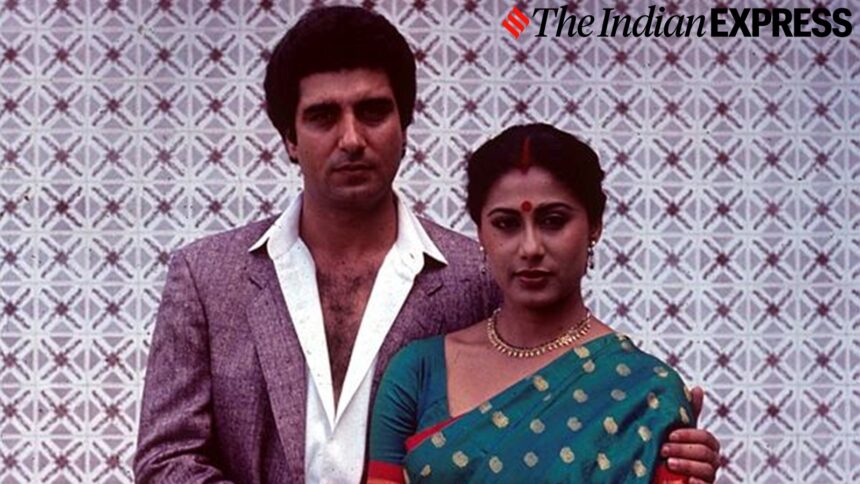Actors Raj Babbar and Smita Patil’s bond was an emotional labyrinth — layered, turbulent, but deeply human. Their connection began on the sets of , where Raj, already married to Nadira Babbar, found himself drawn to Smita’s fearless spirit.
“My relationship with Smita was not the with Nadira — it just happened,” Raj once said in an interview with , reflecting on the love that blossomed amid personal conflict and public scrutiny. Though their bond ran deep, Smita described it as “a painful trip.” In another conversation with , she once admitted, “In the kind of situation we are involved in, both of us are going through a private hell. It’s very easy to say ‘it’s okay’. But it’s not very easy in reality.”
After the birth of their son Prateik in 1986, tragedy struck when Smita died of post-partum complications. Recalling her final moments in conversation with , Raj shared, “Throughout the journey from home to hospital, she kept apologising and I told her that everything would be okay. She looked at me with tears in her eyes. Her look said it all. The doctor came out after an hour and said she had gone into a coma.” He added, “I was part of her and she was part of me. It is natural that you miss a person who was your heart and soul throughout your life, no matter how brave you may say you are. She and her memories will continue to be part of me till my last day.”
Counselling psychologist Athul Raj tells , “In such relationships, guilt often moves in quietly but takes up permanent residence. Even when the love is genuine, the conditions around it — social judgement, family fallout, moral scrutiny — start to that love is supposed to bring.”
Raj adds that isolation becomes a second skin. You learn to keep your joy small and your pain silent. You might be deeply connected to someone, yet emotionally exiled from the rest of your world. That fracture is exhausting. Over time, it fragments the self — you become one person in public, another in private. And in that in-between space, a quiet suffering grows.
Smita’s phrase ‘private hell’ captures what so many feel but can’t say: even love can become a source of internal conflict when lived under constant scrutiny. “And that’s the tragedy — because love, at its best, should be expansive. But in the wrong context, it starts to shrink us,” notes the expert.
Raj Babbar recalled that during Smita’s final moments, she “kept apologising.” Raj notes, “From childhood, girls are taught to anticipate needs, to apologise for existing too loudly, to make themselves smaller so others can be more comfortable. In relationships, this emotional caretaking becomes second nature. You don’t just love someone–you manage their peace, their reputation, their comfort. And over time, that self-erasure gets mistaken for grace.”
For women in socially scrutinised or , the guilt multiplies. “Not only are they loving, they’re justifying that love every day–to family, to friends, to society, sometimes even to themselves,” explains Raj.








